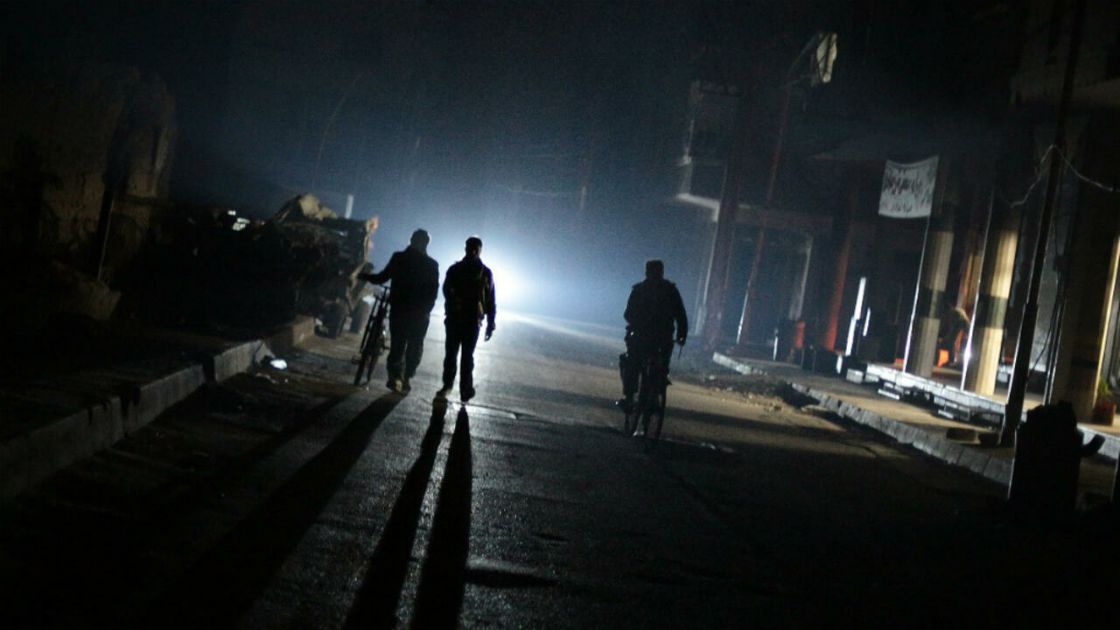- Editorials
- Posted
Kassioun Editorial 1066: Electrifying the Country
Not dealing with the electricity crisis as a priority rises to the level of national irresponsibility, as it contributes effectively to emptying the country of its people, perpetuating division, additional deterioration of living standards, and the Zionist plans for the country and its people.
The reality of the situation in most Syrian regions is that power connectivity is at about 4 hours per 24 hours, or 17% of the day. In cities and industrial areas, that connectivity is about 10 hours, i.e., 42% of the day. In some parts of Syria, private power generation has flourished and with continuously increasing prices. All this means that we are living in Syria below the energy poverty line, not to mention the estimates that more than 12 million Syrians live in a state of absence of food security.
The electricity situation is not just another tragedy added to the totality of tragedies that Syrians are living; this issue has dangerous dimensions that threaten the country’s security, future, and unity, and even its existence. This is evident through the following:
First: power outages in the way they are happening in cities and industrial areas, and in residential areas that are in the Syrian case crowded with medium and small workshops, means production interruption, and means directly contributing to raising its costs. The same also goes for an important portion of agricultural activities, either directly or by raising the different costs thereof, as well as manufacturing industries derived therefrom. In today’s world, there can be no productive economy without electricity.
Second: raising the cost, and practically causing losses to industrial and agricultural productive sectors, means objectively opening the door and pushing the people towards the various forms of black and criminal economy, including narcotics and human trafficking in all its forms. That is, the current deteriorating electricity situation has become over time a constant basis of destroying society in its entirety, materially and spiritually.
Third: power interruption processes in the way they are happening, is also an expression of completing the processes of lifting subsidies, which are among the recommendations of the IMF and the World Bank.
Fourth: the discrepancies in the number of power connectivity and interruption among different Syrian regions, especially among areas under the control of different authorities, is becoming a tool in perpetuating the de facto division.
Fifth: the electricity situation and its economic and social consequences, has become with time an additional tool in the process of driving the Syrian people out of Syria and in the process of emptying Syria of its population. What should not be forgotten in this context, is that emptying Syria of its people is one of the declared objectives, for many decades, for global Zionism, as “the best way” to end the Syrian position from the Zionist entity. Not to mention the Zionist entity’s declared projects, which are clearly expressed in Shimon Peres’s book “The New Middle East”, where these projects aim to empty the entire region from electricity and the production thereof, so it can be tied to the Zionist entity through electricity and its production.
Solutions are possible and numerous, and they are not at all the so-called “Arab gas pipeline”, whose promotors promise us with a few additional minutes of connectivity a day, while ignoring all its political and patriotic ramifications.
The solution requires domestically securing the needed resources (which are in the pockets of the major thieves in particular) and allocating them to resolving the problem. It also requires obtaining serious external cooperation that is appropriate for the country politically and economically.
Just like with all the outstanding issues in Syria, what is required is having the real political will to solve them, which has become abundantly clear is not going to be available except through a comprehensive radical change, the key of which is the full implementation of UNSC Resolution 2254.


